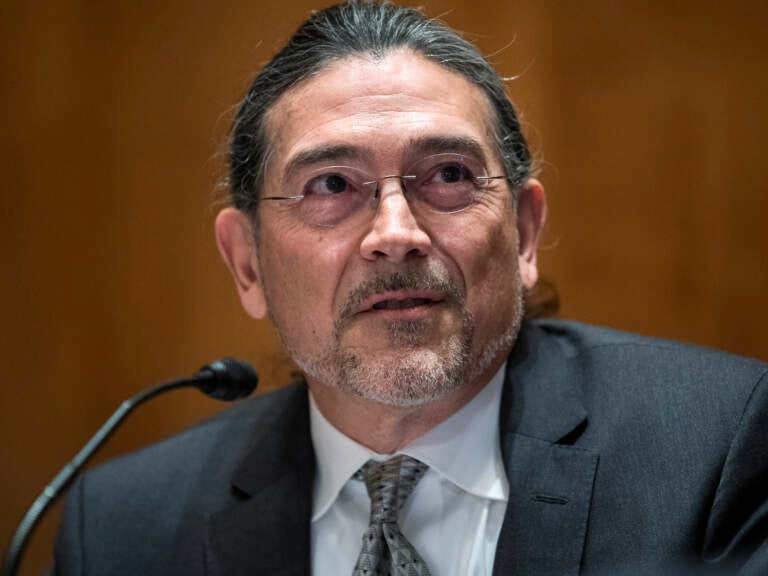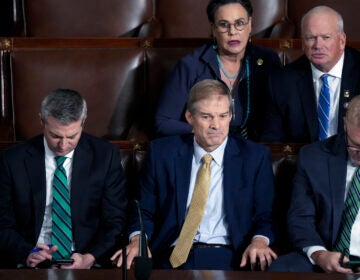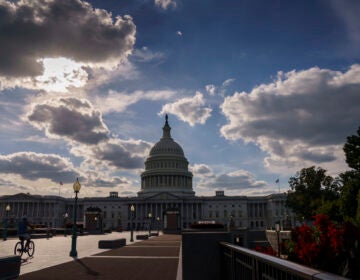U.S. census director says bureau is strengthening ‘firewall’ after Trump meddling

U.S. Census Bureau Director Robert Santos, shown here during his 2021 Senate confirmation hearing in Washington, D.C., began serving as the first Latino to head the federal government's largest statistical agency in January. (Tom Williams/CQ Roll Call via Getty Images)
The Biden administration is drafting new regulations to try to better protect the Census Bureau from any future political interference from its parent agency, the Commerce Department, the bureau’s director, Robert Santos, told NPR on Monday.
“I expect that there will be from deliberations with the Department of Commerce additional regulations to make sure that there is a harder wall between the Census Bureau and the Department of Commerce to ensure that there won’t be any inappropriate activity,” Santos said in one of his first interviews since becoming the bureau’s leader in January.
Asked when the regulations will be released, Santos did not provide any additional details but noted that he has reviewed “measures for that type of firewall.”
The revelation comes after years of meddling with the 2020 census by former President Donald Trump’s administration, which attempted to add a hotly contested question about U.S. citizenship status to the head count’s forms, added a series of political appointees with no obvious qualifications to the bureau’s top ranks and cut short counting efforts after the COVID-19 pandemic delayed many of the bureau’s operations.
The moves by the previous administration have fueled calls for new ways to safeguard the once-a-decade head count’s integrity. Last month, a report by the Biden administration’s Scientific Integrity Task Force, which included the bureau’s highest-ranking civil servant, Deputy Director Ron Jarmin, warned that the bureau and other federal statistical agencies “must protect against interference in their efforts to create and release data that provide a set of common facts to inform policymakers, researchers, and the public.”
The first Latino to head the federal government’s largest statistical agency, Santos is weeks into a political appointment that has landed him in not only U.S. history books, but also a hotbed of controversy over the results of the 2020 headcount.
While the results have already been used to reallocate each state’s share of congressional seats and Electoral College votes, as well as redraw maps of voting districts across the country, questions about accuracy linger over the count.
On March 10, the bureau is set to start releasing results of its own assessment of the data’s quality.
Concerned about the lasting impacts of the COVID-19 pandemic and interference by the Trump administration, many census watchers are hoping to see to what extent the 2020 census may continue a decades-long pattern — the overcounting of people who identify as white and not Latino and the undercounting of people of color.
Flaws in the count carry big implications for political representation, the distribution of some $1.5 trillion a year in federal money and the country’s understanding of the people living in the United States. Santos and other bureau officials are under pressure to come up with new methods to mitigate the effects of a turbulent census.
Santos is also stepping into a heated debate over privacy protections applied to the 2020 census redistricting data and other more detailed information, just as the bureau ramps up its planning for the 2030 census, which could bring new ways of collecting data on race and ethnicity, particularly about Latinos and people of Middle Eastern or North African descent.
9(MDAzMzI1ODY3MDEyMzkzOTE3NjIxNDg3MQ001))




